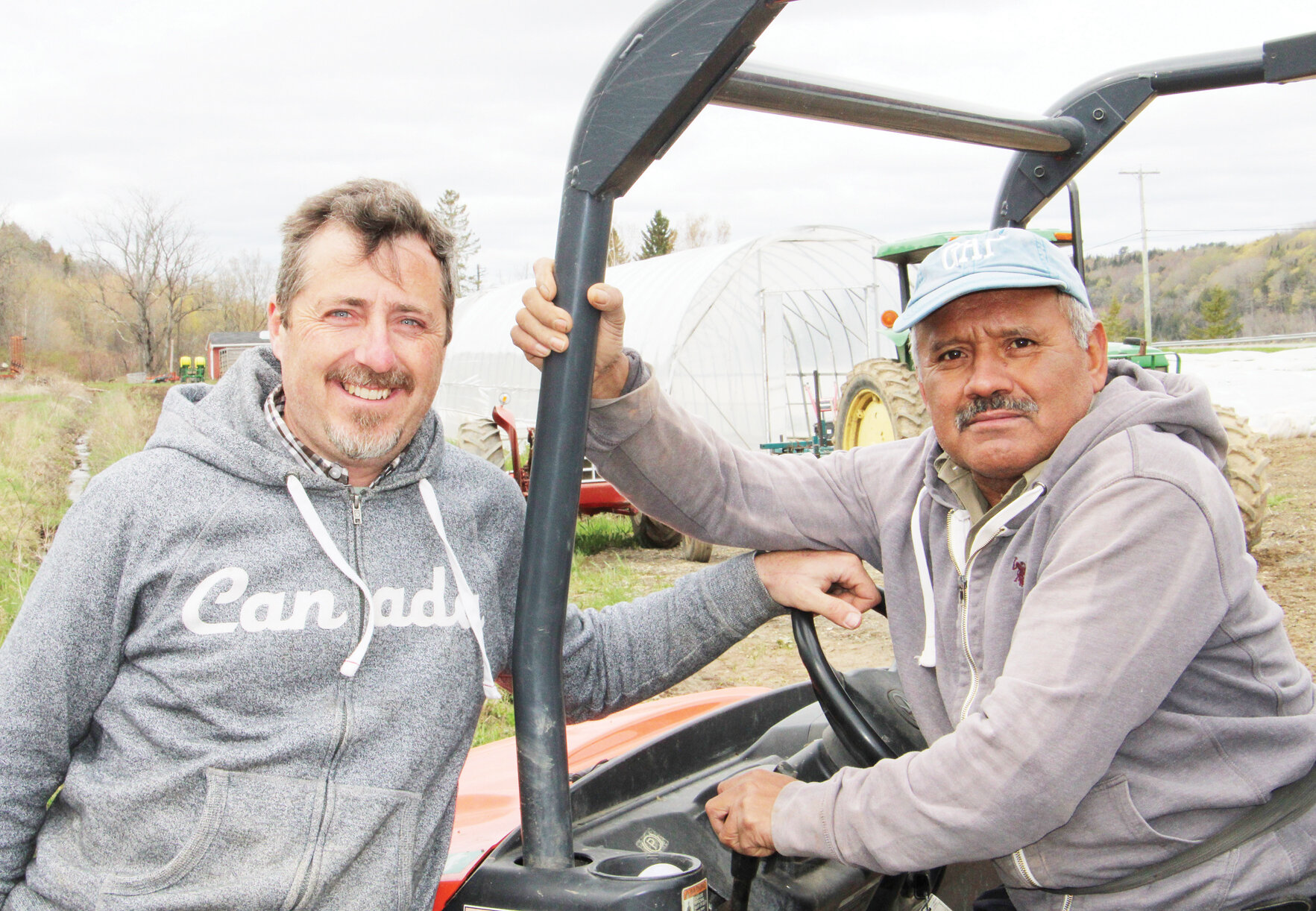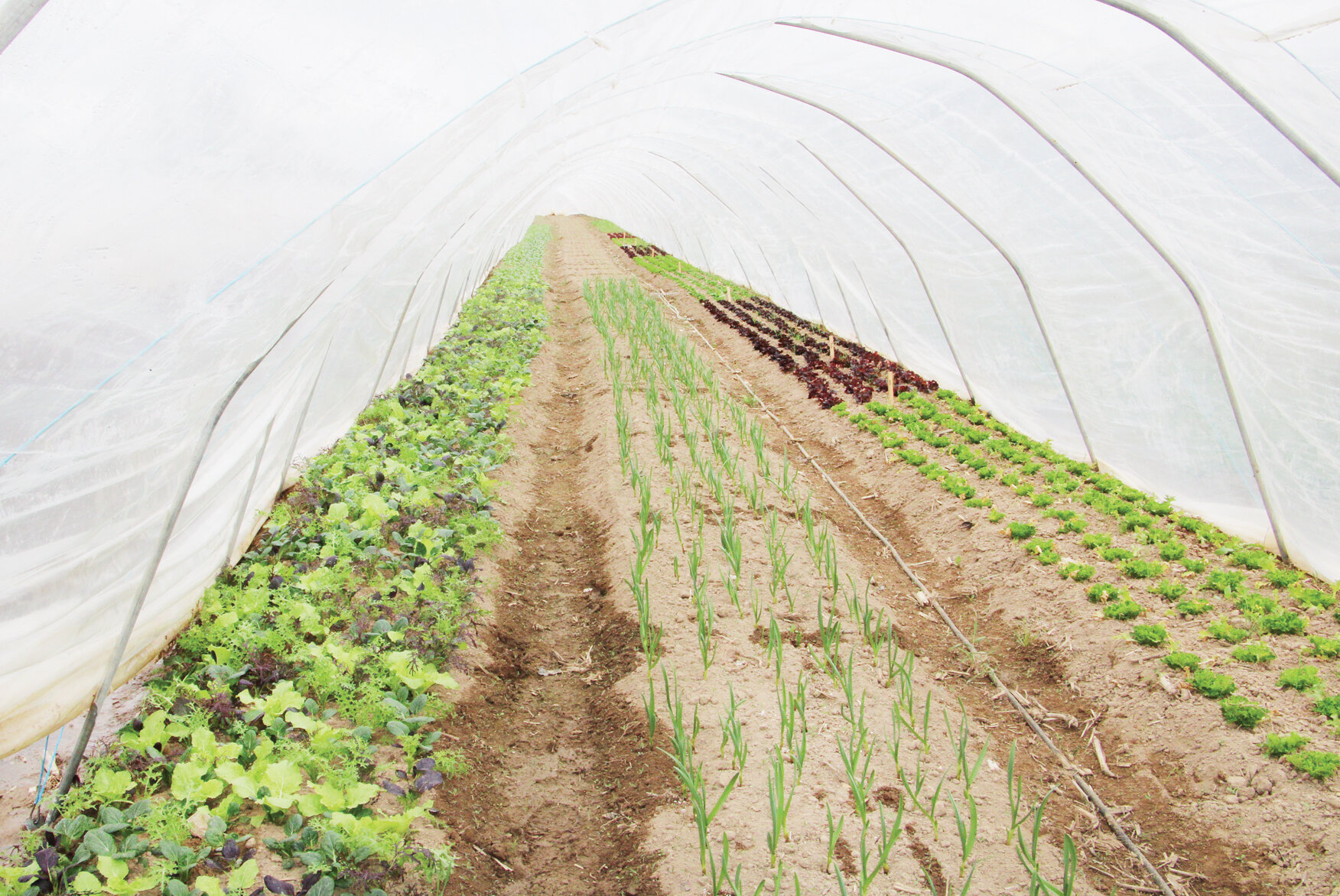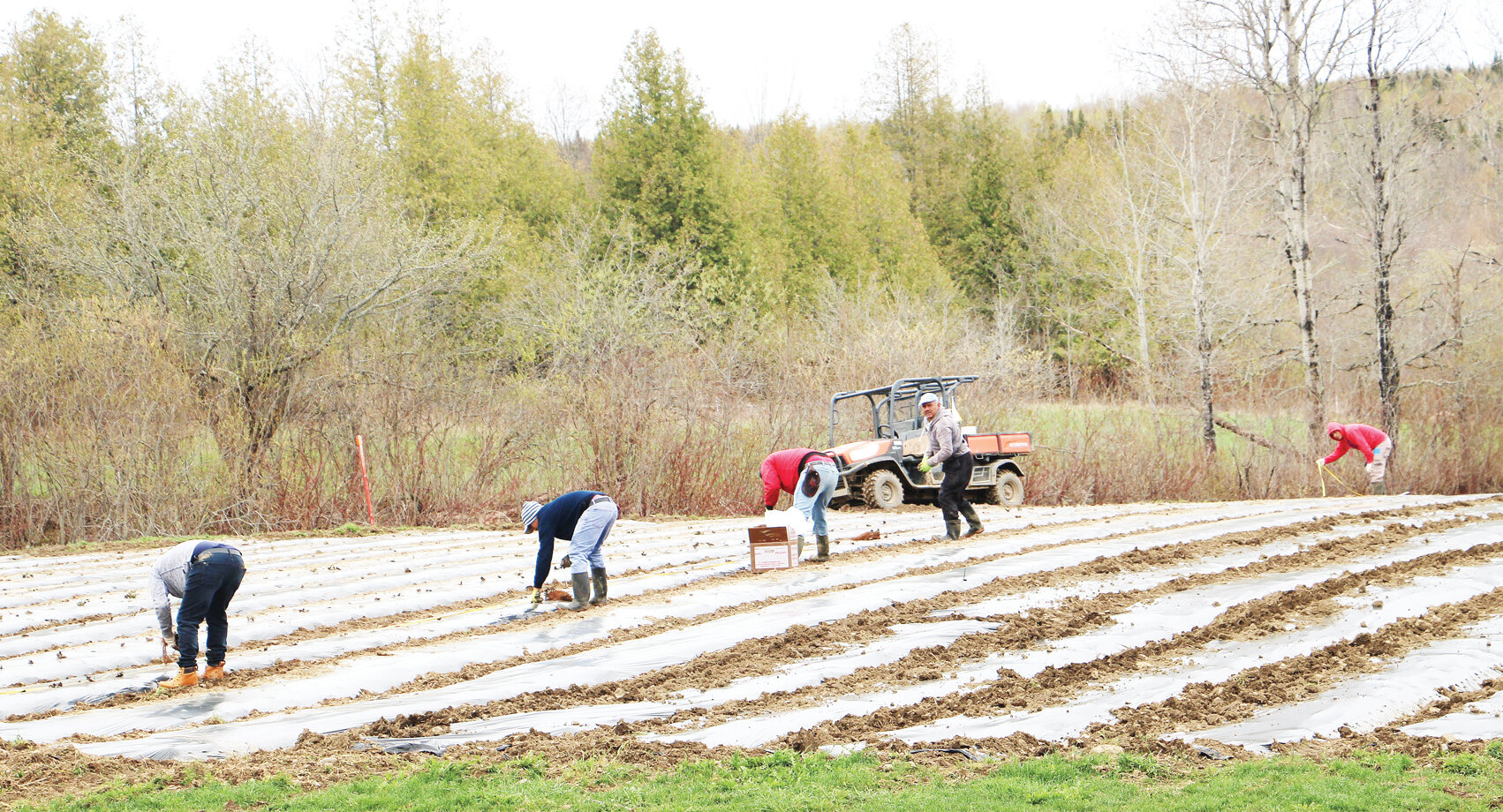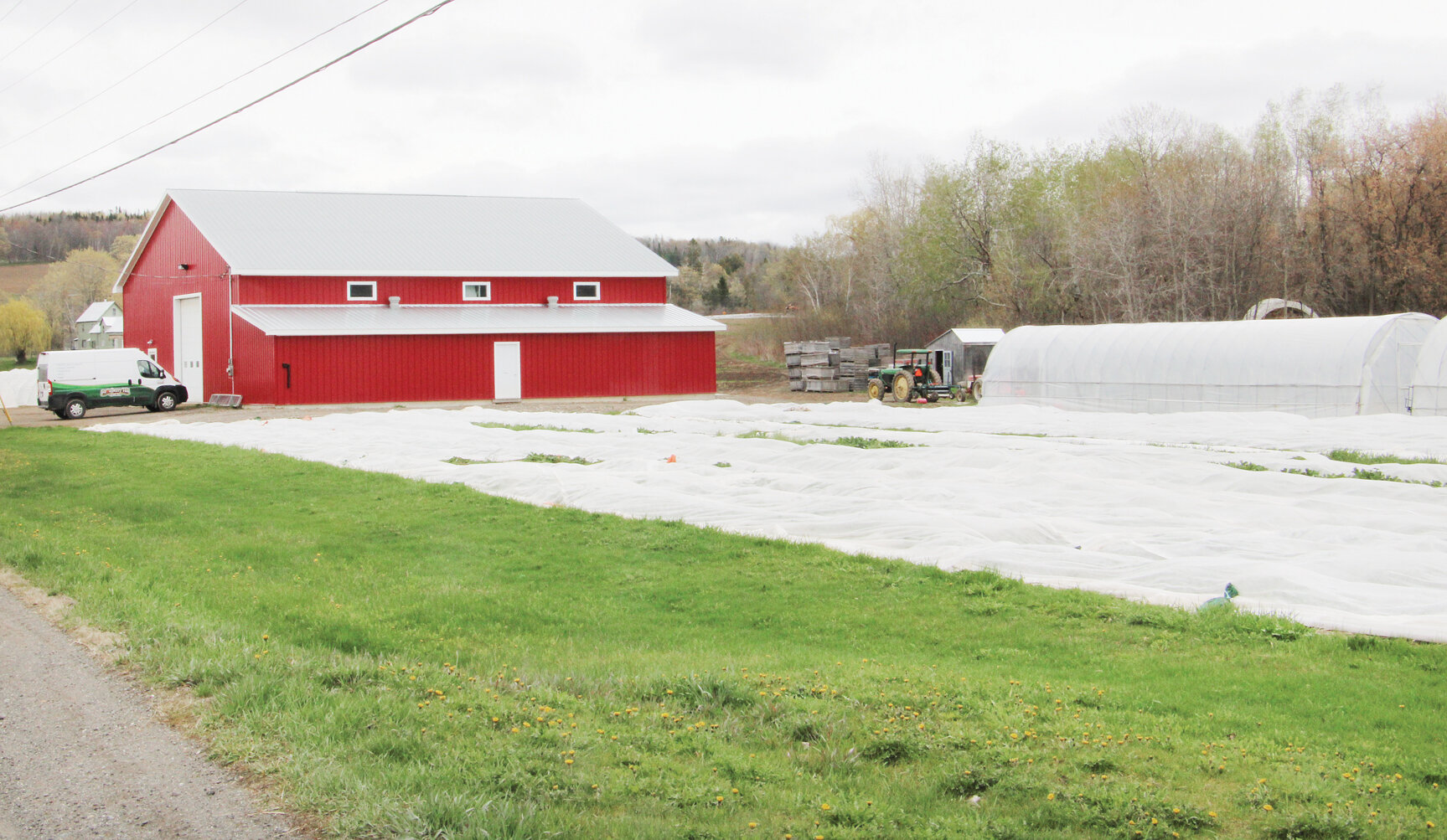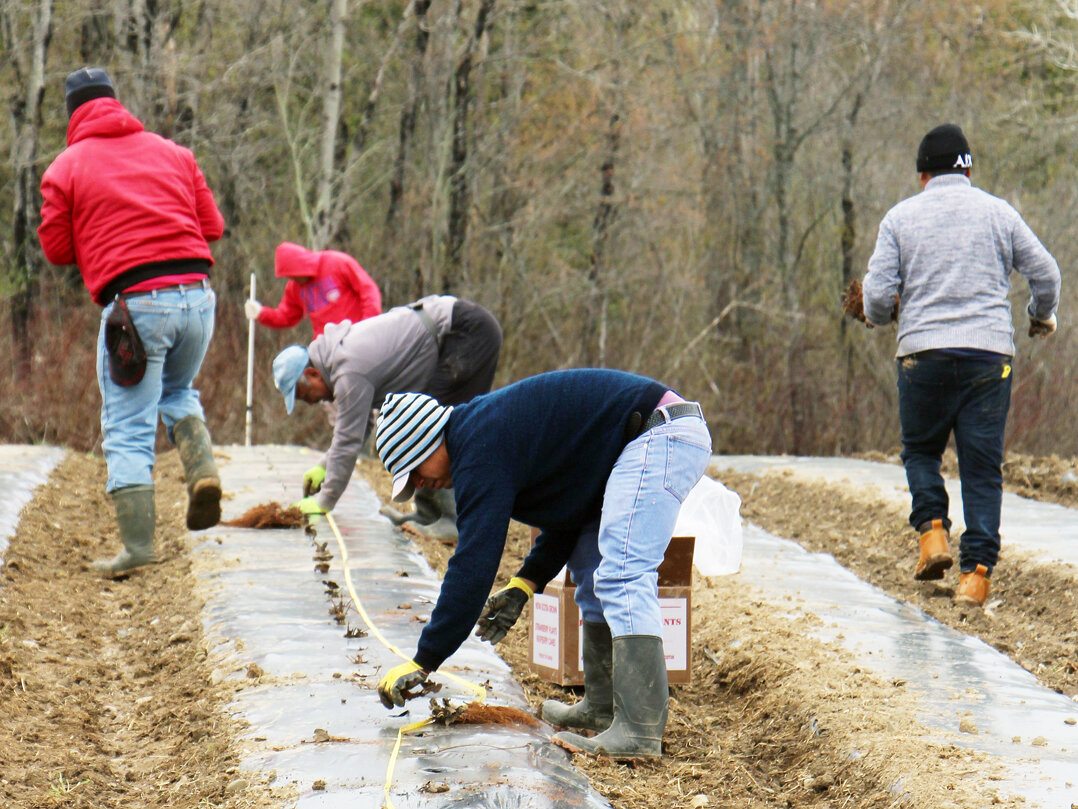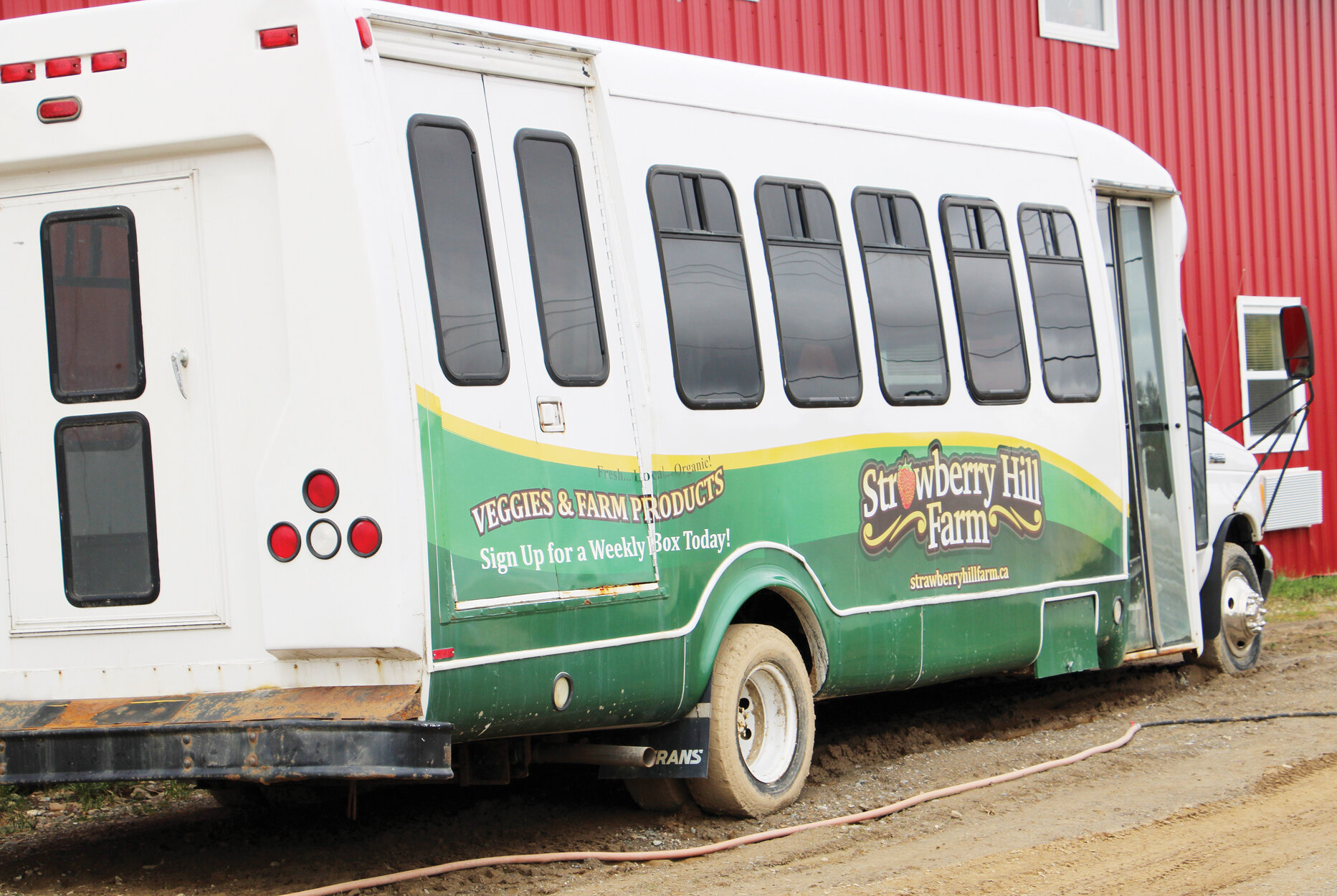N.B. farmers hurt by temporary foreign worker rules
/Strawberry Hill Farm has 15 acres in certified organic fruits and vegetables, as well as pasture-raised beef, hogs, and poultry. (George Fullerton photos)
by George Fullerton
At the end of the first week in May, Tim Livingstone was delighted to see his crew of five seasonal agriculture workers from Mexico finished with their COVID-19 isolation and in the field planting strawberries.
The Livingstone family owns Strawberry Hill Farm in Pembroke, N.B., which is a few miles north of the town of Woodstock. The temporary foreign workers work alongside Tim, his wife Kirsten, their daughter Nollie, one full-time local worker, two nearly year-round local workers, five or six seasonal local workers, and two summer students.
Strawberry Hill Farm has 15 acres in certified organic fruits and vegetables. The Livingstones grow 50 different crops, as well as beef, hogs, and poultry all raised on pasture. The farm grows its own forages and grain to feed the livestock and uses the straw for bedding, crop mulching, and winter cover.
The farm has a seasonal produce box program with some 400 subscribers receiving weekly deliveries from June through November. They also have a weekly winter box program, online sales, and a farm store for their local customers.
The farm packs boxes and loads two buses, which deliver to customers’ homes and central pickup locations. One day is dedicated to Saint John and Moncton deliveries, another day to Fredericton and area, and a third day to the Woodstock and Grand Falls regions.
The Strawberry Hill production system utilizes a greenhouse, plastic mulch, row covers, and tunnels to extend the growing season.
The farm has hired seasonal agriculture workers for the past six years and Tim Livingstone considers their contribution essential.
“We would hire all local workers if we could find and rely on trained workers,” he said. “Our seasonal workers from Mexico have come to us with years of experience on farms in Mexico, as well as experience on a variety of farms all over Canada. If we did not have the opportunity to employ our trained workers, we could not operate our farm as it currently is.”
ONE-MONTH BAN
Last spring, New Brunswick Premier Blaine Higgs placed a one-month ban on temporary foreign workers due to COVID-19. Higgs suggested that there were lots of unemployed New Brunswickers who could fill the employment needs in agriculture and fish processing. Following a lobbying effort, the Higgs government relented and reversed the ban on May 29, 2020.
Livingstone did hire local workers at the beginning of the 2020 season but experienced multiple challenges to get them to his farm, isolated, and eventually working in the crops.
“We hired nine local workers,” he said. “However, only one or two had any horticulture experience, so we had to continually train them on just about every task. As a result, productivity was very low. We do about 50 different crops, so every crop required additional training and supervision.”
Livingstone said the farm’s costs increased by 50 percent compared to a typical year.
“As the season progressed, the local workers required additional training for harvesting crops and their low productivity resulted in falling behind on the weeding schedule, which in turn resulted in reduced productivity in several crops,” he said.
Temporary foreign workers did arrive in New Brunswick last year after Higgs reversed his ban, but visa applications were delayed and the workers still had to isolate in on-farm housing for two weeks before they could start working.
“Our temporary seasonal workers are highly trained agricultural workers and they know precisely what is required to do tasks efficiently and correctly with minimal supervision right from first to last day of the season,” said Livingstone. “We were very frustrated that New Brunswick imposed a total ban on temporary foreign seasonal workers, while our neighbouring provinces designed policy to safely employ temporary seasonal agriculture workers in their provinces.”
Livingstone laments that food production does not seem to be a priority for the New Brunswick government – save for potatoes and blueberries – compared to neighbouring Nova Scotia and P.E.I.
“Rather than encourage our own food production, the government and a good portion of the public promote importation of food from anywhere in the world with no concern for economic or sustainability costs,” he said.
One of the Mexican workers on Strawberry Hill Farm is Odulio Magin-Sanchez, who’s returned for his sixth year. With Livingstone translating, Magin-Sanchez joked that he comes to New Brunswick over the summer for an extended holiday.
The two men have a collegial relationship. Livingstone visited Magin-Sanchez in Mexico during the winter of 2020 and helped his family harvest coffee beans on their farm.
NEW CHALLENGES
This year, Livingstone and other New Brunswick employers faced new challenges around their temporary foreign workers. Because the workers could only fly into only certain Canadian airports due to new federal rules, New Brunswick farmers had to pay for charter flights to bring them into the province. The New Brunswick government also changed the rules this year, stating that temporary foreign workers had to isolate individually for 14 days rather than isolating in worker housing on host farms as was done successfully in 2020. That meant many employers had to put their workers up in hotels or motels for two weeks.
“Initially, we understood that there was to be a federal program to assist employers with the cost of the mandated isolation costs in designated hotels,” said Livingstone. “We contacted our member of Parliament, who explained there was no federal assistance program. Later on an assistance plan was announced, but our late application was unsuccessful.”
Anna Belliveau, CEO of the Agricultural Alliance of New Brunswick (AANB), said New Brunswick farmers who employ temporary foreign workers are not at all satisfied with the way the provincial government has rolled out COVID-19 regulations this year.
Belliveau said many farmers had already made major investments in worker housing on their farms to meet 2020 COVID-19 isolation and distancing requirements when the government changed the rules.
“Farmers were hurt financially by the rule changes,” she said.
The federal government did offer a support payment of $1,500 per worker until June 15. Belliveau said that while the support covered a portion of the extra isolation costs, it leaves farmers who will bring in workers after June 15 without that critical support.
“A lot of farmers have scaled back their operation simply because of added costs to get their workers,” said Belliveau. “Some farmers have said they are considering getting out of farming because of the problems of securing foreign workers.”

